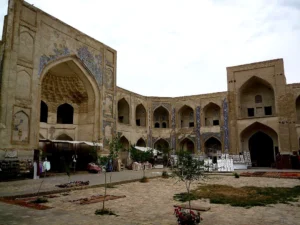The Kashmir Neoliberal Solidarity

The politics of solidarity in the neoliberal regime is a complex interplay between economic interests, geopolitical maneuvering, and the systematic erasure of marginalized voices. Solidarity, once a rallying cry for the oppressed, has increasingly been commodified within neoliberal structures, where states and markets dictate its parameters. Nowhere is this phenomenon more evident than in the case of Kashmir, a region embroiled in colonial designs, post-colonial politics, and the relentless expansion of market forces. The abolition of Article 370 and 35A by the Indian government in 2019 exemplifies how neoliberal imperatives align with hegemonic political ambitions, reducing the people of Kashmir to mere economic subjects within a larger capitalist framework. This move reflects the broader trend in global conflicts, where struggles for self-determination are reframed through a neoliberal lens that prioritizes market expansion over human rights.
Kashmir’s struggle for self-determination has been systematically undermined by both colonial legacies and contemporary geopolitical interests. The British exit from the Indian subcontinent in 1947 left behind a fractured region, with Kashmir at the center of a territorial dispute between India and Pakistan. Prem Nath Bazaz, in The History of Struggle for Freedom in Kashmir, outlines how the Kashmiri people have historically been subjected to external rule, be it by Dogra rulers or post-independence Indian administration. The revocation of Article 370, which granted Jammu and Kashmir special autonomy, is part of India’s larger project of assimilating the region into its economic and political structures. Alastair Lamb, in Kashmir: A Disputed Legacy, traces how colonial border-making and post-colonial political arrangements have perpetuated cycles of violence and resistance.
Gramsci’s concept of cultural hegemony and Robert Cox’s neo-Marxist critique of global capitalism provide crucial insights into the Kashmir conflict. The Indian state, backed by neoliberal institutions, employs ideological control to justify its policies in Kashmir. Mridu Rai, in Hindu Rulers, Muslim Subjects, highlights the historical marginalization of Kashmiri Muslims under Hindu rule, a process that has been exacerbated under contemporary Hindu nationalist policies. The portrayal of Kashmiri resistance as terrorism serves to delegitimize their aspirations for self-determination, a tactic mirrored in other global conflicts such as Palestine, where Israeli settler colonialism operates under the guise of security concerns.
The United Nations, often cited as an arbitrator in such disputes, has proven largely ineffective in resolving the Kashmir issue. The UN resolutions on Kashmir, passed in 1948 and 1949, called for a plebiscite to determine the region’s future. However, these resolutions remain non-binding, as they fall under Chapter VI of the UN Charter, which deals with conflict resolution through peaceful negotiations rather than enforcement. Binding resolutions, passed under Chapter VII, require direct intervention, which major powers have consistently blocked in Kashmir’s case. AG Noorani, in The Kashmir Dispute: 1947-2012, provides a comprehensive analysis of how international legal frameworks have been manipulated to sustain the status quo rather than address Kashmiri aspirations.
The politics of the right to self-determination is deeply entangled with the discourse of terrorism. Who gets to claim self-determination, and who is labeled a terrorist, is dictated by global power structures. In Danger in Kashmir, Josef Korbel warns against the tendency of dominant states to criminalize movements for independence while supporting similar struggles elsewhere for strategic reasons. This contradiction is evident in the West’s selective recognition of separatist movements—Kosovo’s independence was endorsed, while Kashmir’s remains suppressed. Similarly, Christopher Snedden, in The Untold Story of the People of Azad Kashmir, documents how Kashmiri voices are sidelined in international debates, reinforcing Frantz Fanon’s assertion that colonial subjects are denied political agency.
Neoliberalism reconfigures national sovereignty to serve market interests rather than people’s rights. The revocation of Article 370 was not merely a political move but an economic strategy to open Kashmir’s land and resources to corporate exploitation. As Victoria Schofield argues in Kashmir in Conflict, India’s integration of Kashmir aligns with its broader neoliberal trajectory, where economic liberalization trumps democratic principles. In this sense, Kashmir is not just a territorial dispute but a battleground for economic imperialism, where the state acts as an enforcer of capital accumulation.
Solidarity itself has been commodified in the neoliberal age. Mass protests, advocacy campaigns, and even international condemnations are often co-opted into media spectacles that serve market interests rather than effecting tangible change. Paulo Freire’s critique of oppression in Pedagogy of the Oppressed is particularly relevant here—solidarity, when detached from revolutionary praxis, becomes an empty gesture that reinforces rather than dismantles hegemonic structures. The neoliberal order thrives on performative solidarity while ensuring that actual resistance remains suppressed. Fanon’s analysis of colonial violence extends to this context, where the oppressed are pacified through symbolic recognition while their material conditions remain unchanged.
The parallels between Kashmir, Palestine, and other global conflicts underscore the systemic nature of neoliberal oppression. Both regions have been subjected to settler colonialism, military occupation, and economic dispossession under the guise of national security and development. The Israeli occupation of Palestine, much like India’s policies in Kashmir, operates within a neoliberal framework where land annexation is tied to capitalist expansion. The dispossession of indigenous populations is justified through legal mechanisms that favor state and corporate interests over human rights.
Geopolitically, Kashmir represents a critical point in South Asian power dynamics. Pakistan, despite its vocal support for Kashmiri self-determination, has failed to mobilize effective international backing, largely due to its own economic dependencies within the neoliberal order. China’s strategic interests in the region, particularly through the China-Pakistan Economic Corridor (CPEC), further complicate the equation, as Beijing prioritizes stability over revolutionary change. The United States and other Western powers, while occasionally criticizing human rights abuses, ultimately align with India’s neoliberal market policies, ensuring that Kashmir remains a site of unresolved conflict.
In a neoliberal order where people are reduced to consumers and markets dictate national policies, Kashmir is for sale. The revocation of its special status facilitates corporate land acquisitions, tourism-driven economies, and extractive industries, all at the expense of Kashmiri self-determination. The subaltern approach, as theorized by scholars like Gayatri Spivak, helps explain why Kashmiri voices remain unheard—their resistance is framed as irrational, their demands dismissed as unrealistic. The neoliberal state, much like its colonial predecessors, silences the oppressed through economic, political, and military means.
Solidarity with Kashmir, Palestine, and other oppressed groups must transcend performative gestures and confront the structural forces that sustain their subjugation. As Fanon, Freire, and Gramsci remind us, true solidarity is rooted in action that disrupts hegemonic systems rather than reinforcing them. The struggle for Kashmir is not merely a regional issue; it is a microcosm of the global fight against neoliberal oppression, colonial legacies, and the commodification of human existence. The question remains: will the world continue to treat Kashmir as an expendable pawn in its geopolitical and economic games, or will genuine solidarity pave the way for self-determination and justice?

